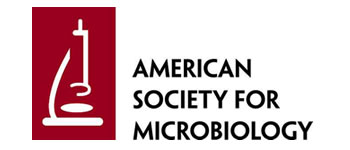
Biology Scholars Teaching with Data: Course Based Undergraduate Research
Embassy Suites at Logan Airport
June 15-16, 2016 Boston, MA
Application Deadline: April 11

The American Society for Microbiology (ASM; asm.org) and Quantitative Undergraduate Biology Education and Synthesis (QUBES; qubeshub.org) are pleased to offer a unique professional development experience to support undergraduate faculty as they step up to the challenge of enhancing students' quantitative skills. This year long professional program combines a two day workshop (June 15-16, 2016) in Boston with an online peer community that will support the development and implementation of quantitative teaching approaches.
The Boston cohort of the Biology Scholars Teaching with Data program will focus on participants adapting their own research project for a Course-based Undergraduate Research Experience (CURE). CUREs are recognized as an effective approach for teaching content and the process of science as well as recruiting and retaining students in STEM.
Who should apply?
Microbiology faculty, particularly future and early career faculty, interested in incorporating their own research into introductory through advanced undergraduate microbiology courses. Please visit the application information page.
What will cohort participants do?
Participants will work with mentors who have successfully implemented CUREs and other cohort members to share resources, provide feedback and brainstorm new ideas as they develop and implement CUREs. Additional information is available on the schedule page.
What are the goals for the BSTD Boston cohort?
- Become familiar with CUREs and some of the current resources for implementing CUREs
- Identify key features of effective CUREs including organizational models, strategies for scaffolding students into research, techniques for managing data and successful collaborations
- Create a planning document outlining the steps involved in designing, piloting, implementing and assessing a project that integrates research and teaching
- Gain experience designing and implementing a small teaching module that addresses an important scientific practice (e.g. designing an experiment, exploratory data visualization, keeping a lab notebook) which will inform the continued development of the larger CURE project
A few shared resources.
- If you would like more background information, we have collected a few CURE resources here.
Content mentors:
- Sarah Ades, Penn State University
- Theodore Muth, CUNY Brooklyn
- Jack Wang, University of Queensland
ASM liaison:
- Kelly Gull, American Society for Microbiology
- Amy Chang, American Society for Microbiology
QUBES liaisons:
- Sam Donovan, University of Pittsburgh
- Alison Hale, QUBES Postdoctoral Fellow

